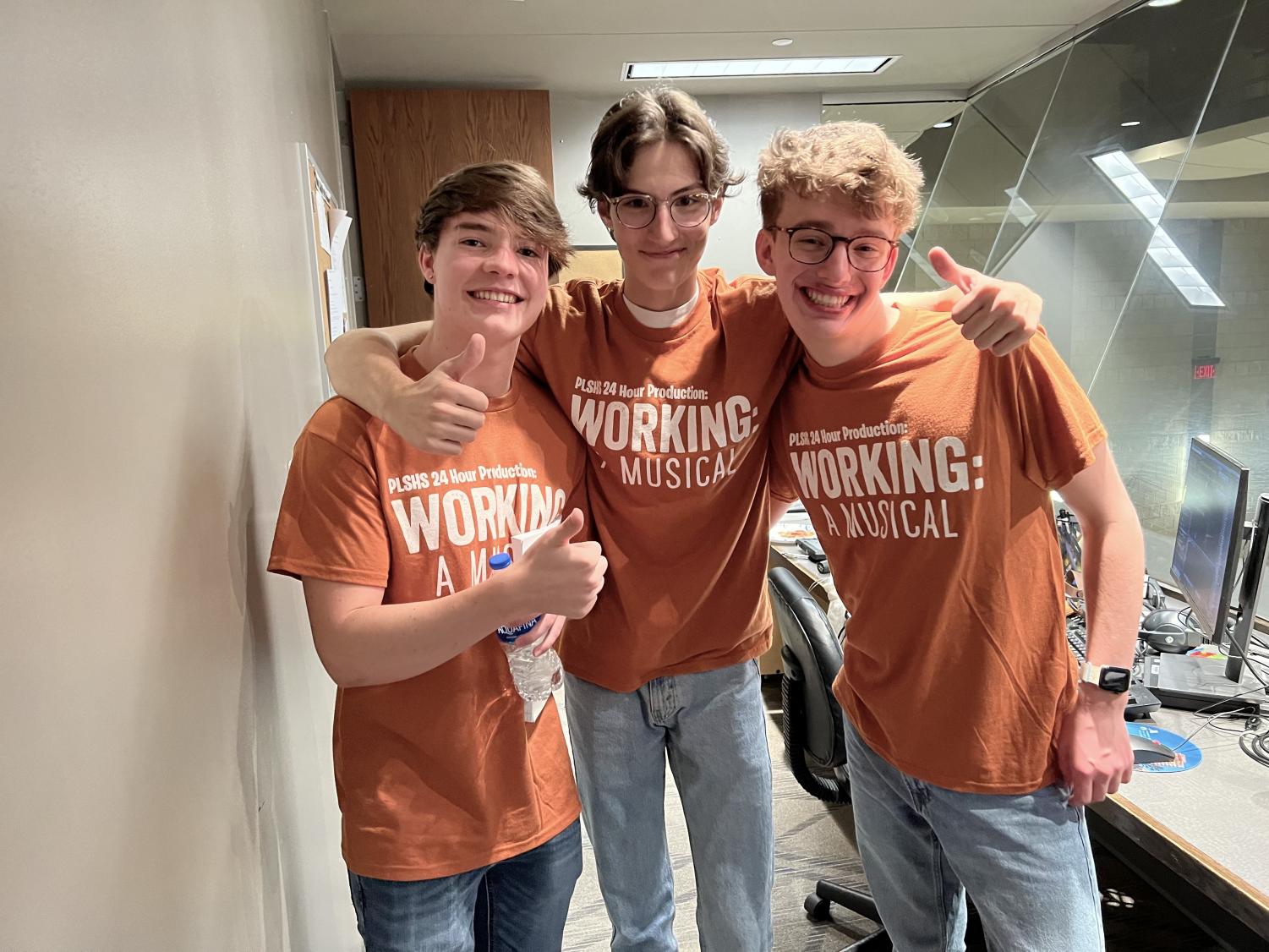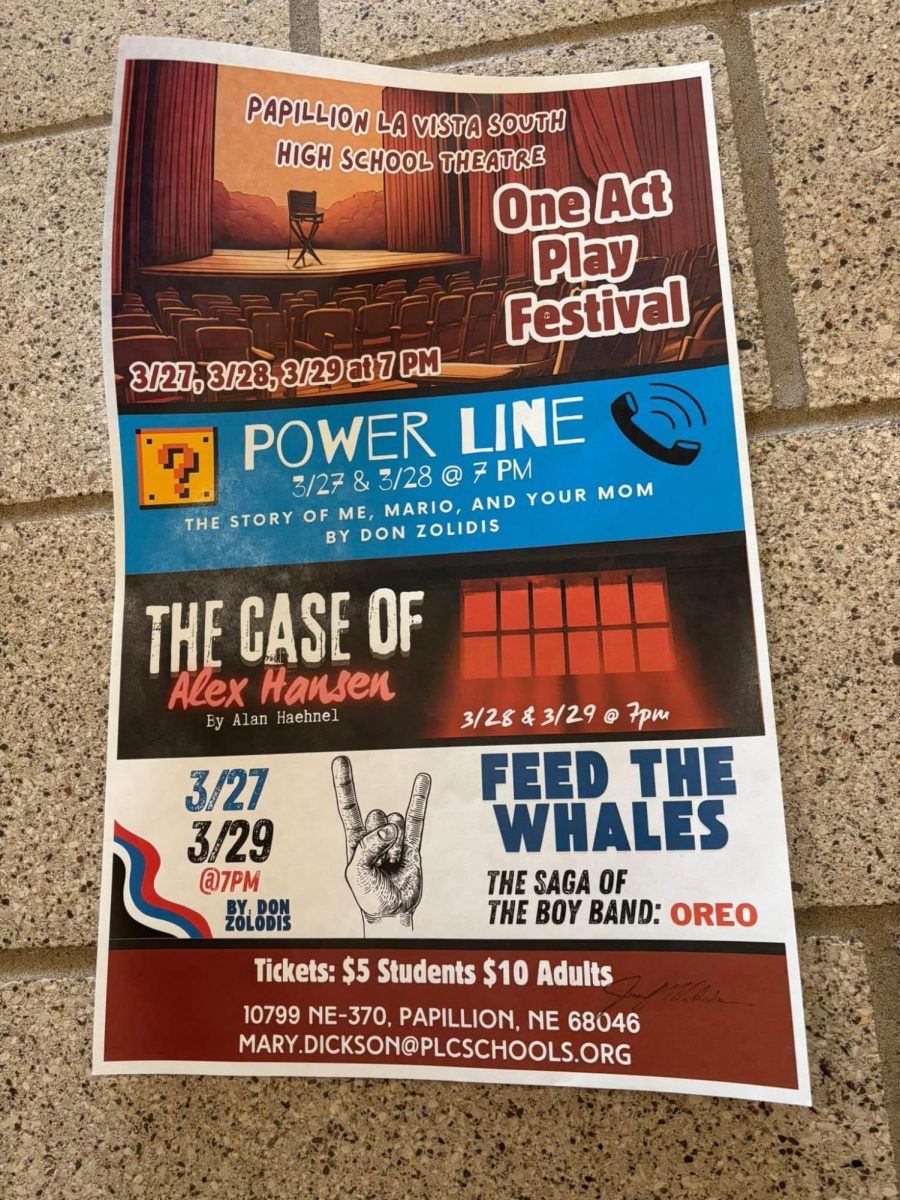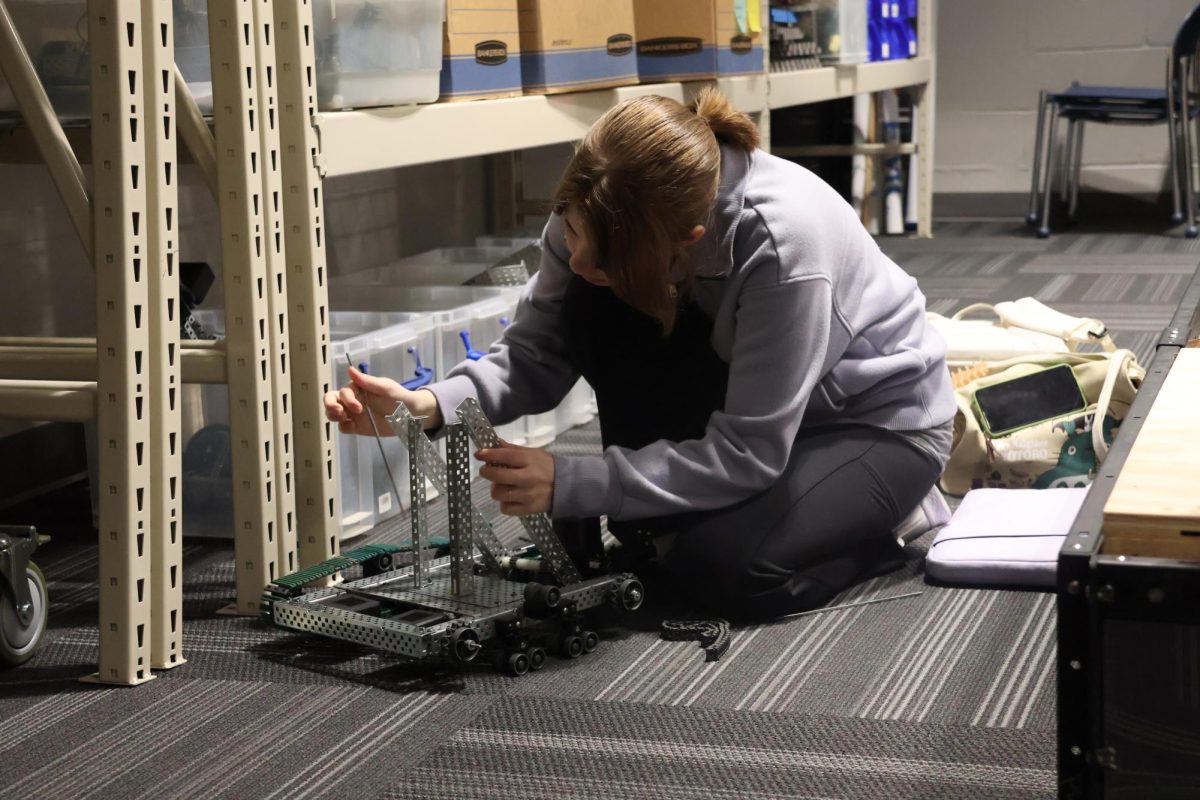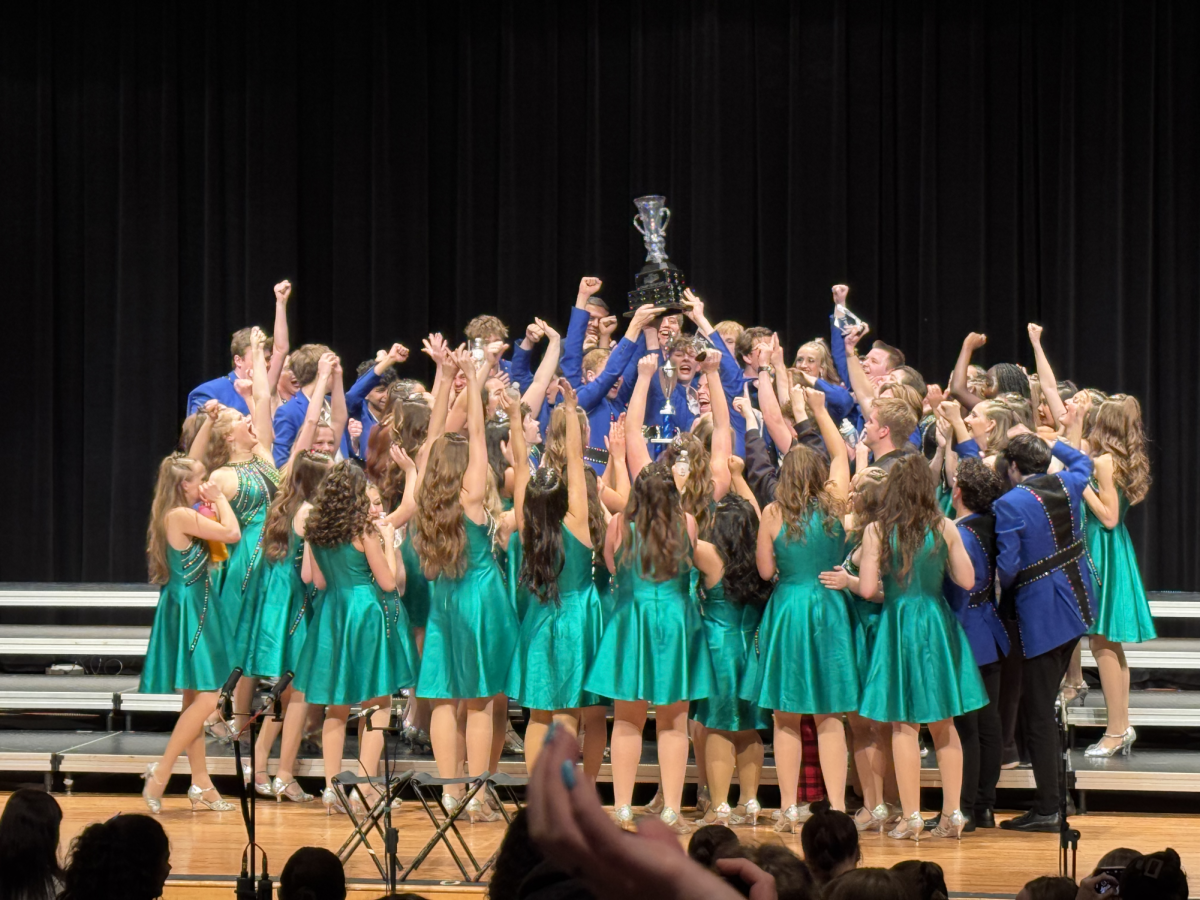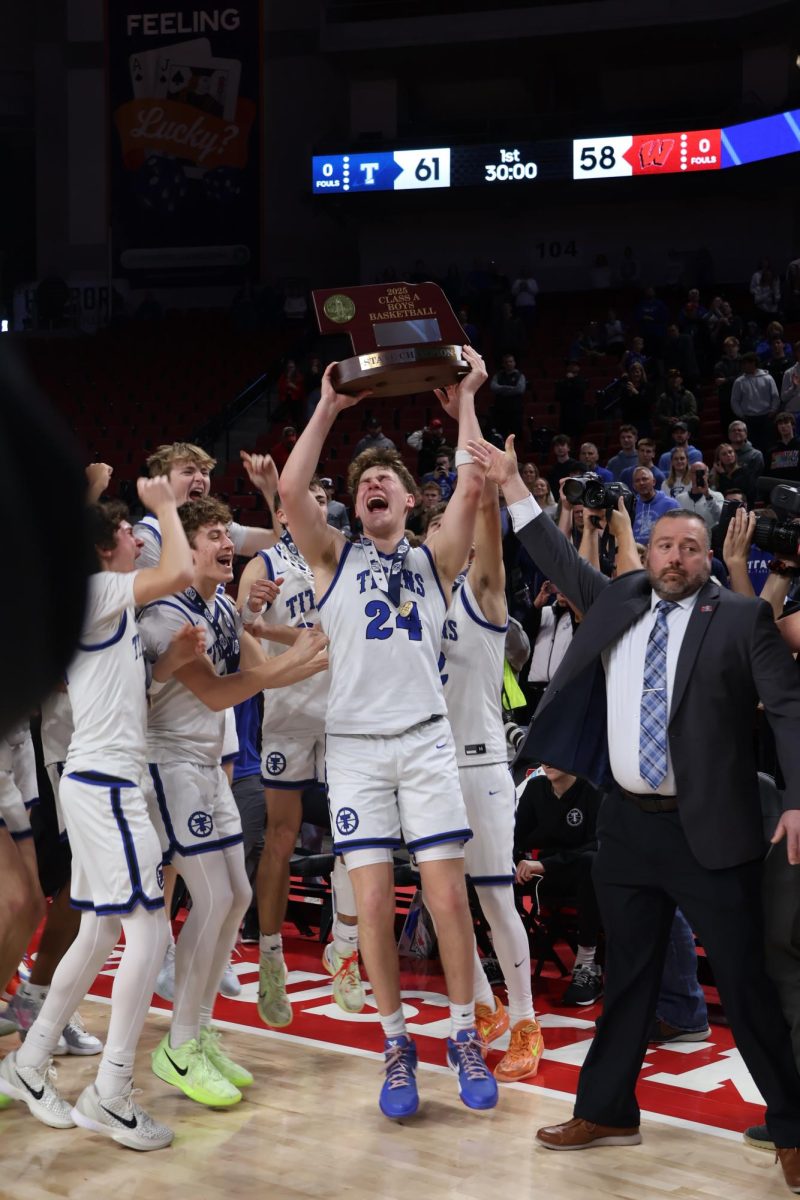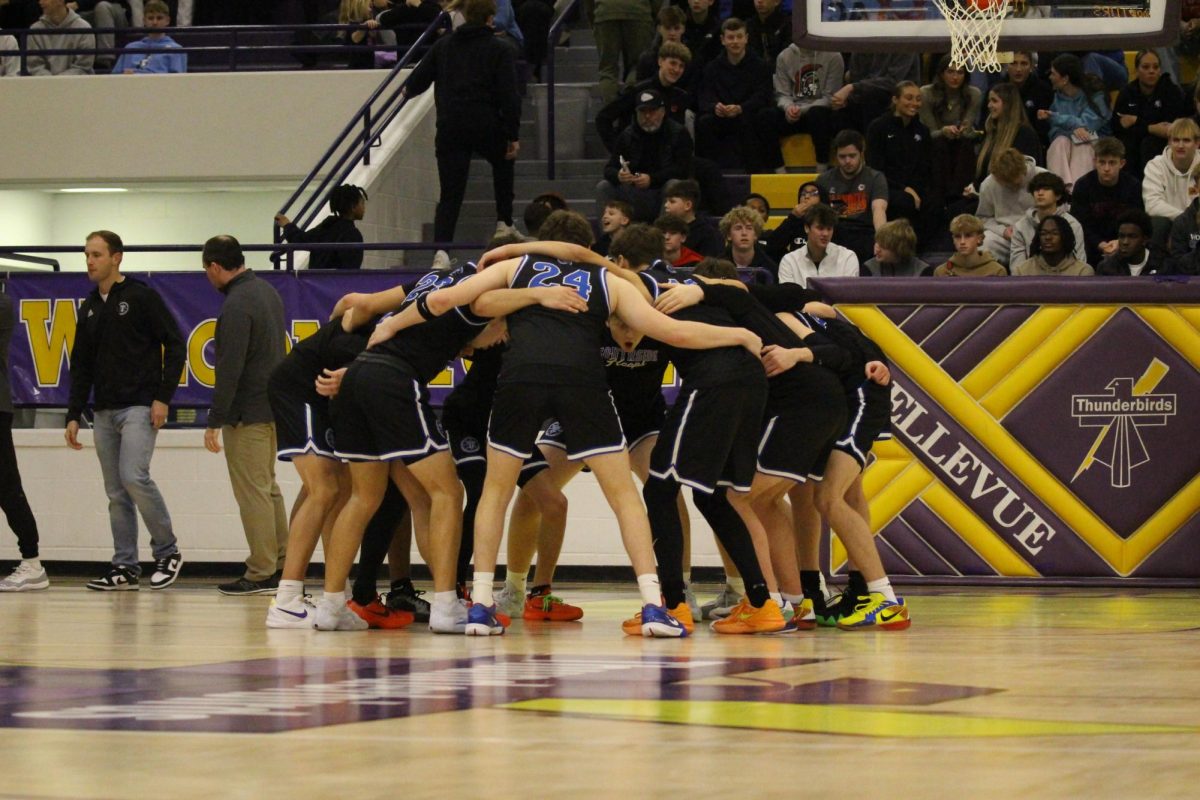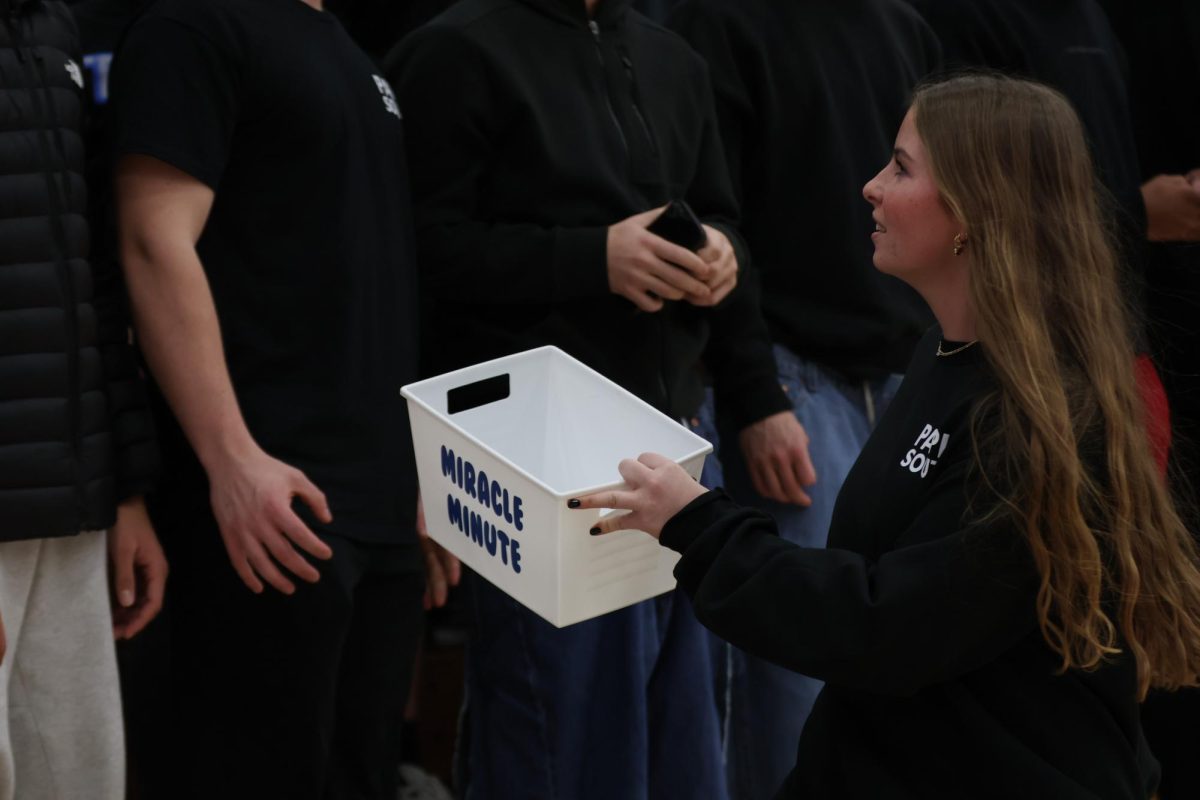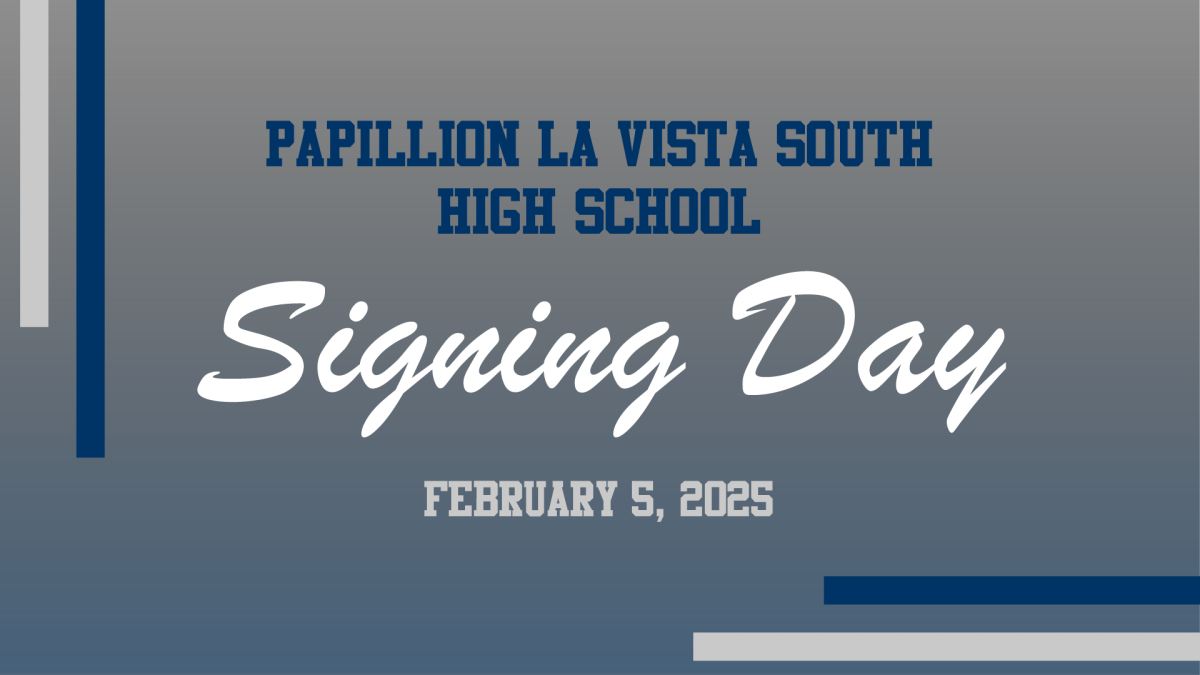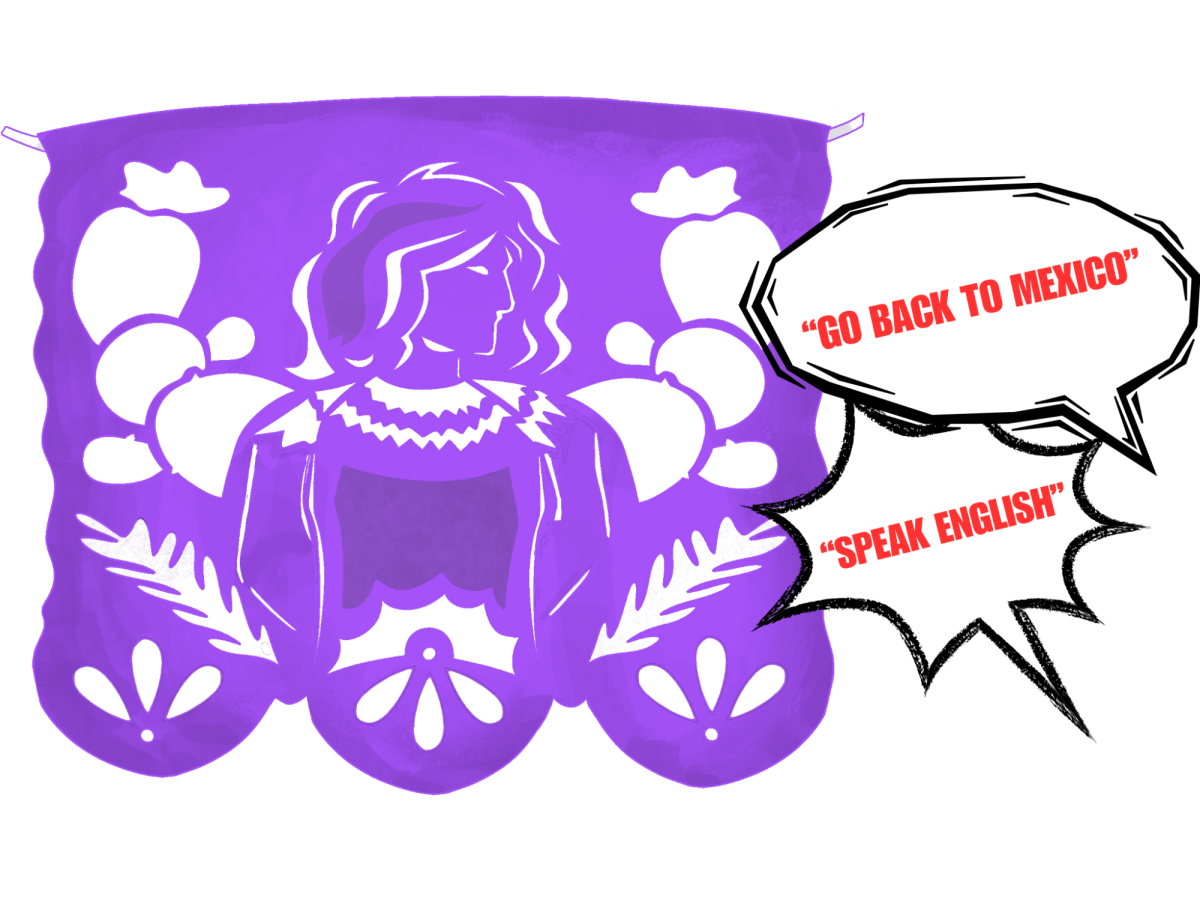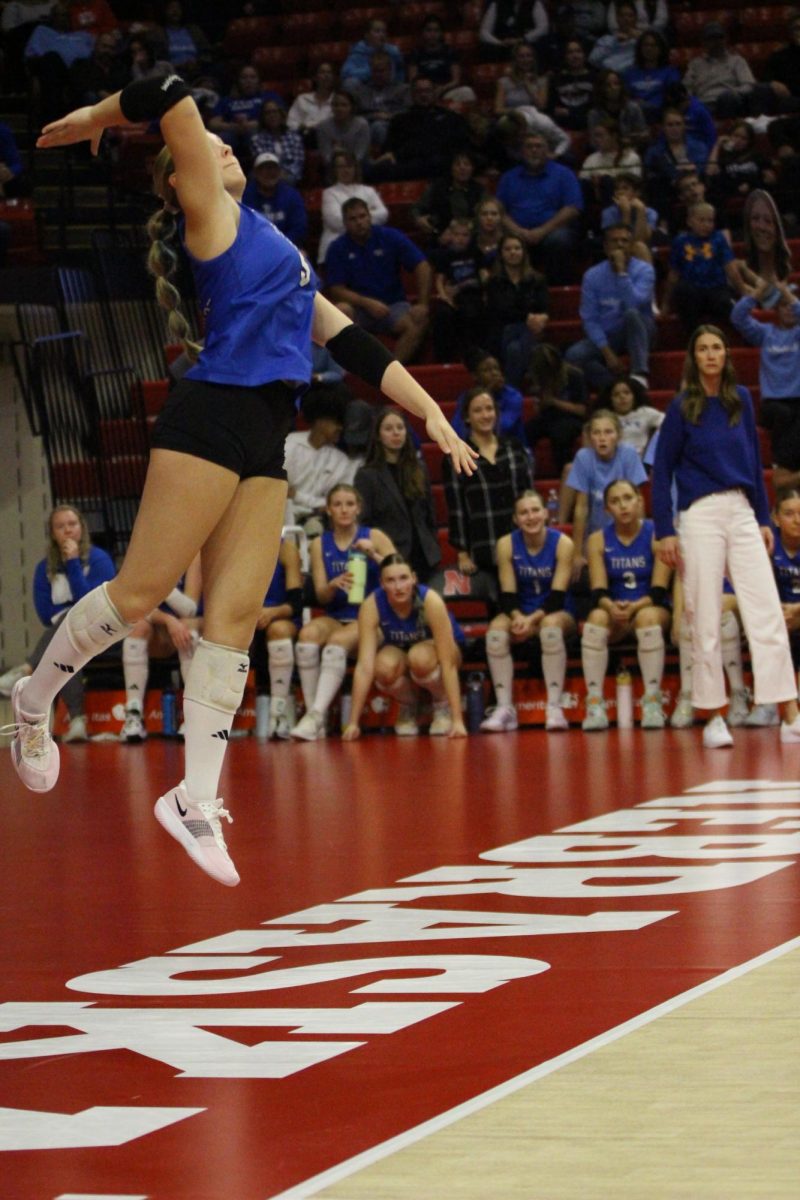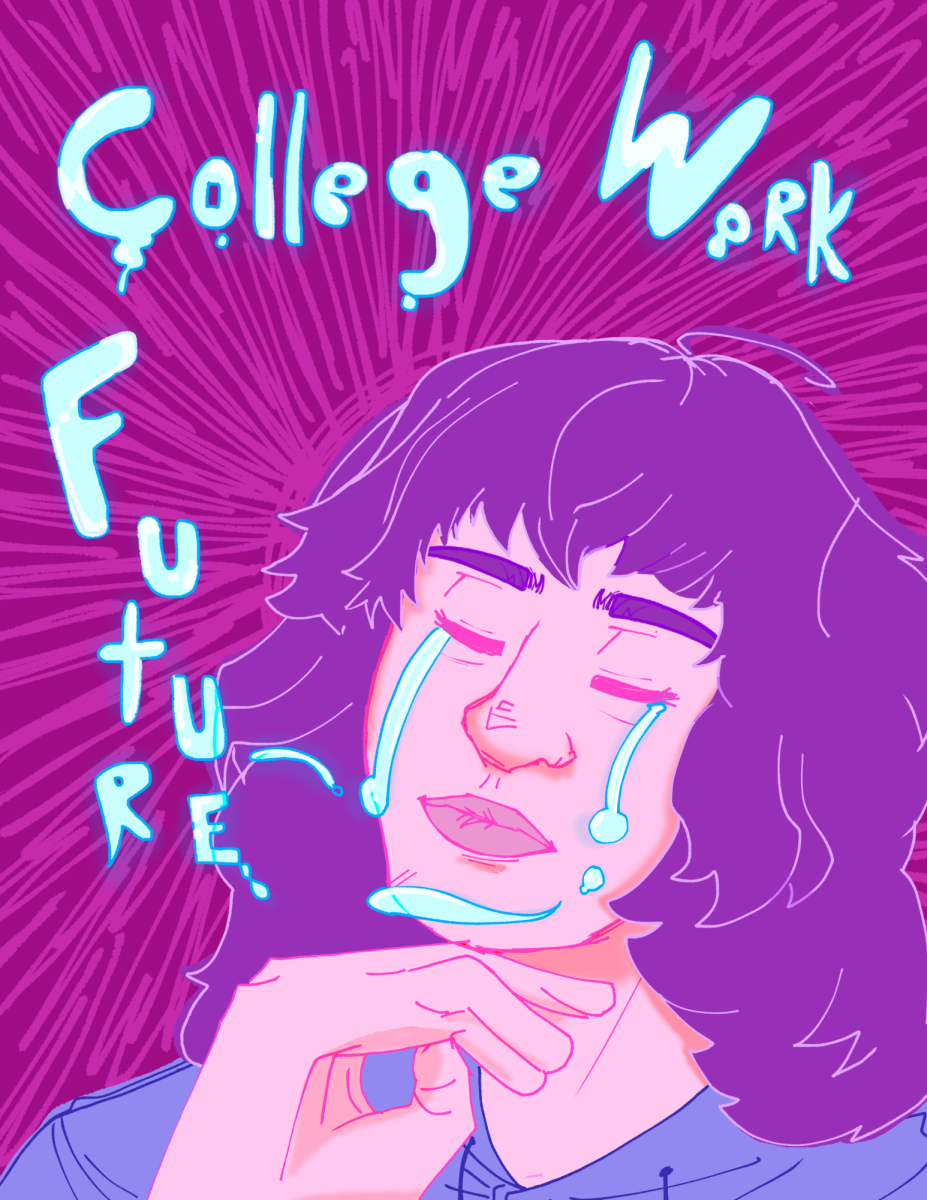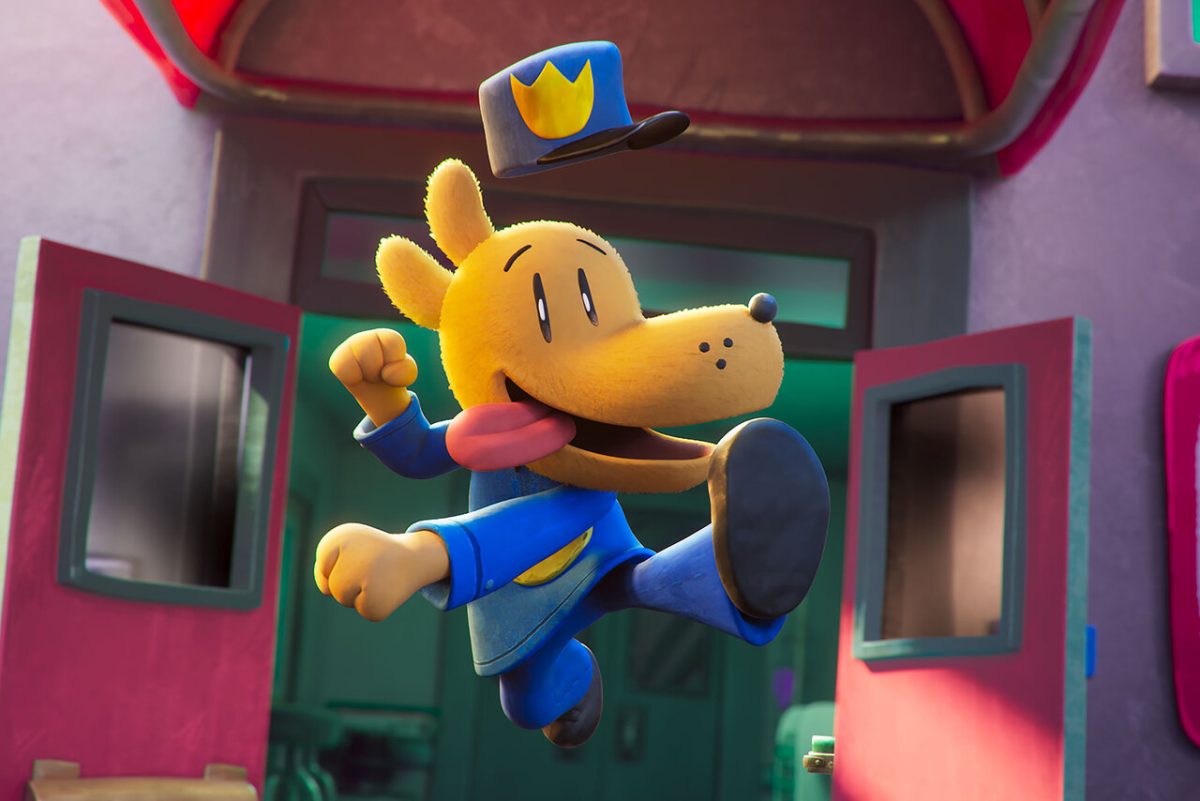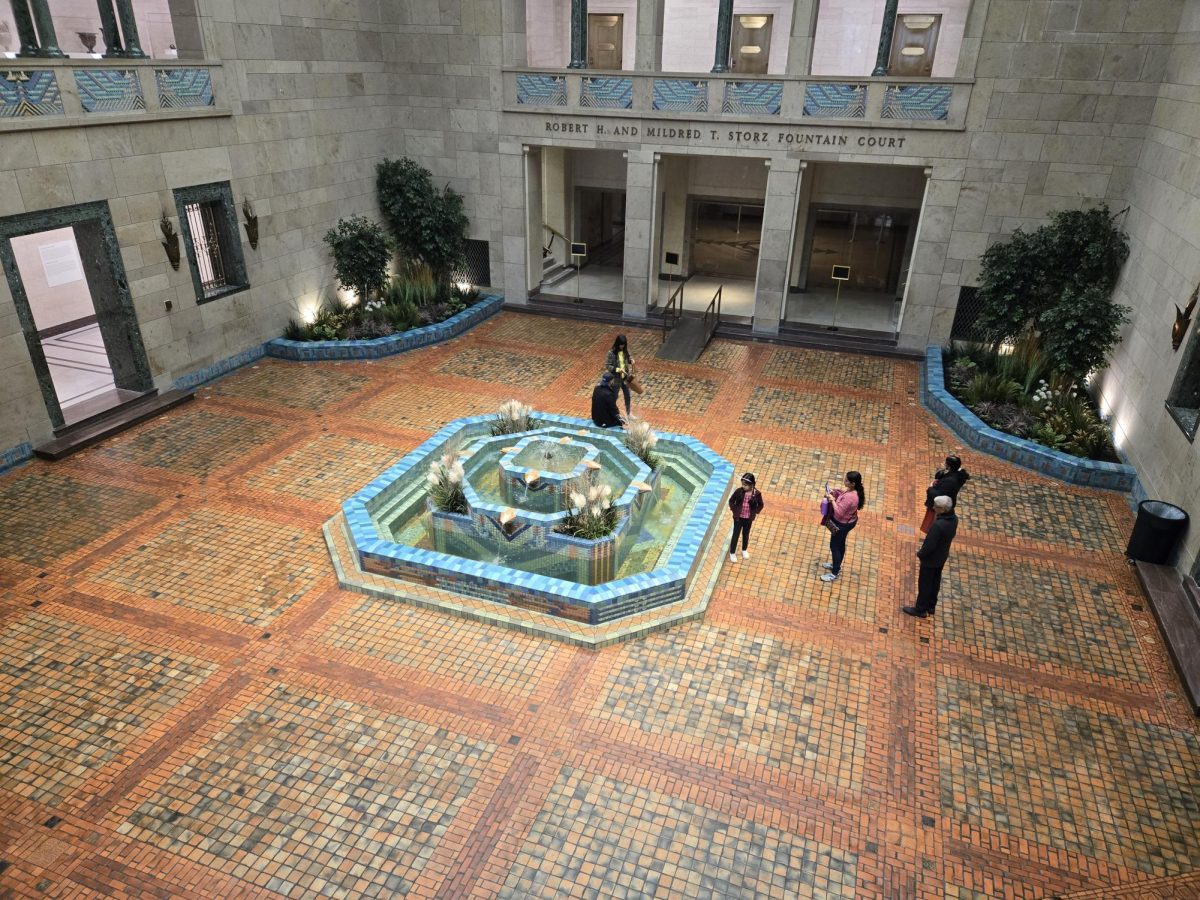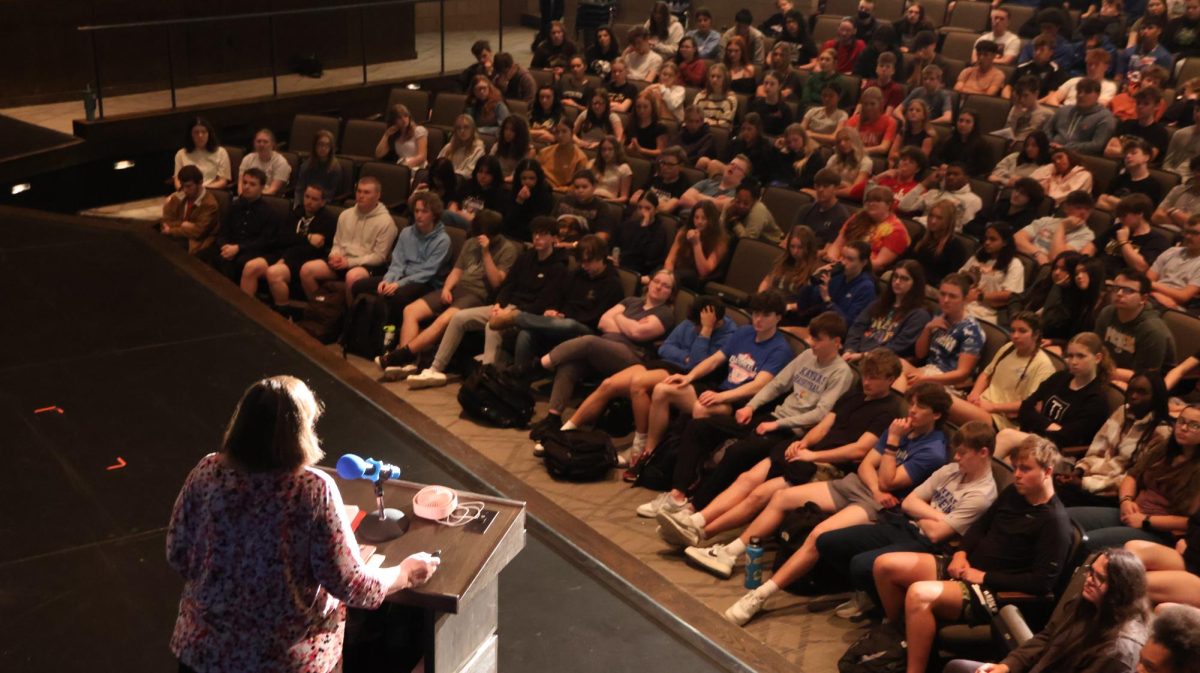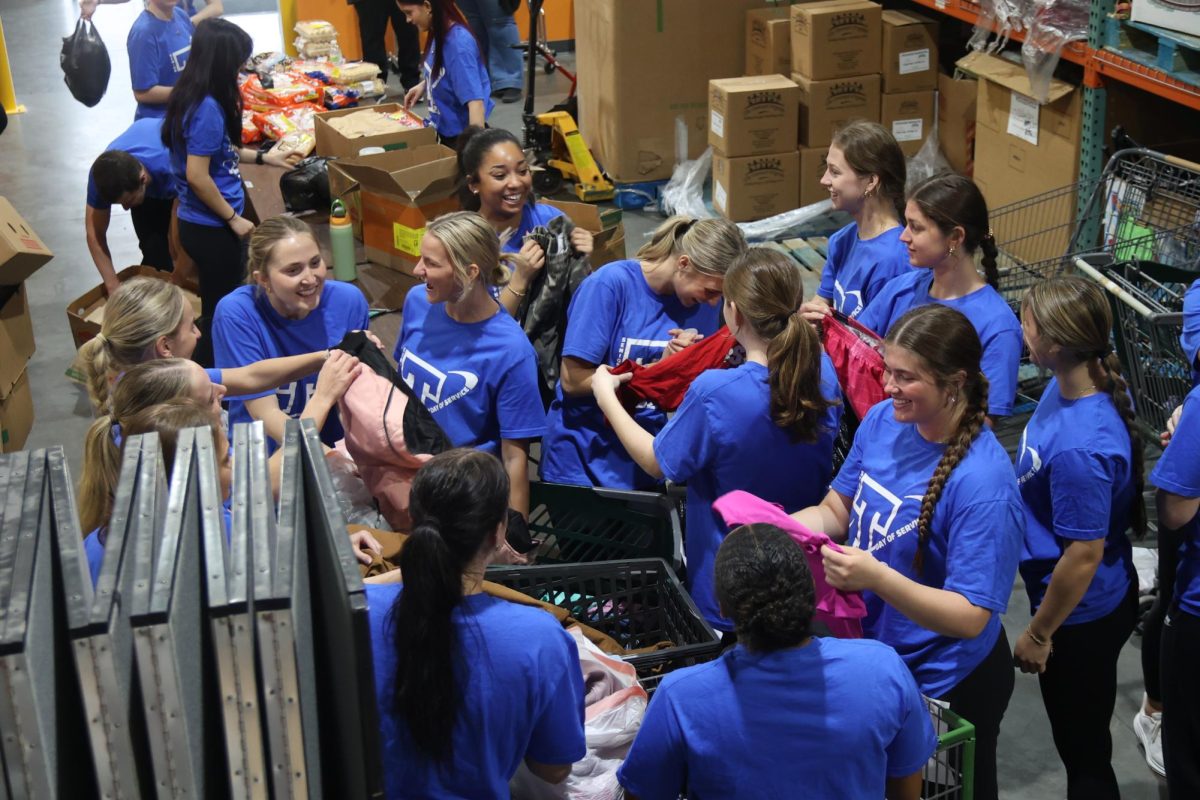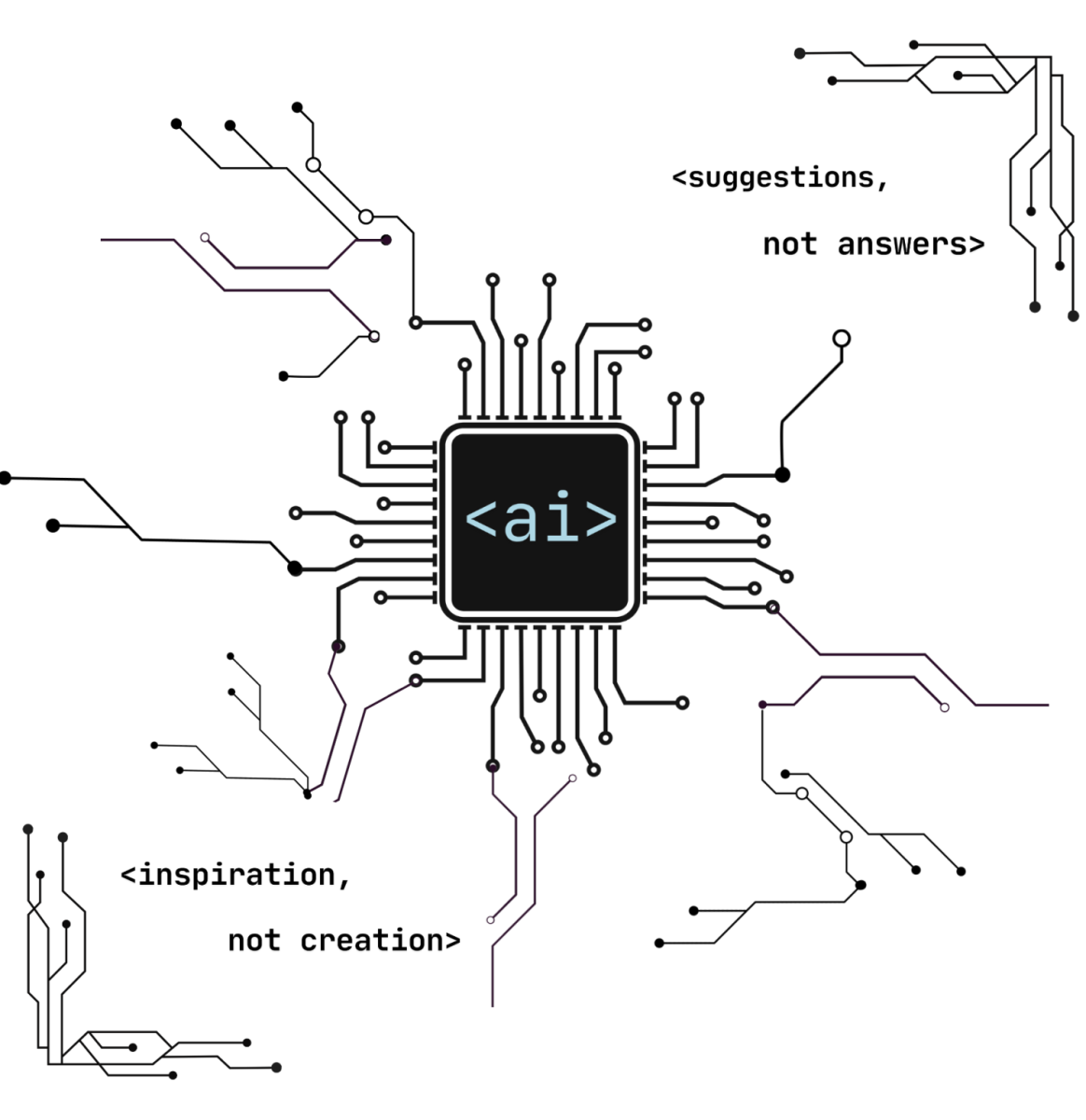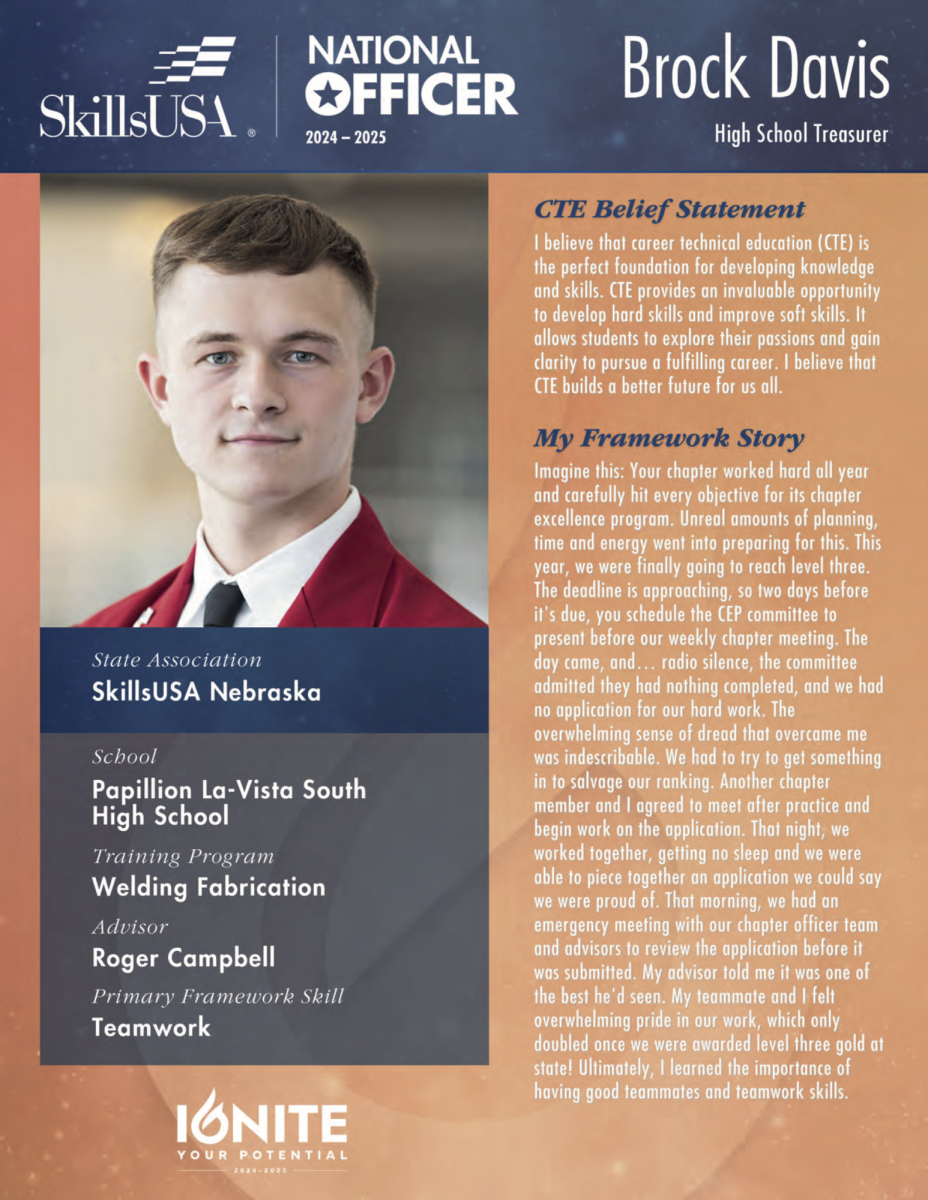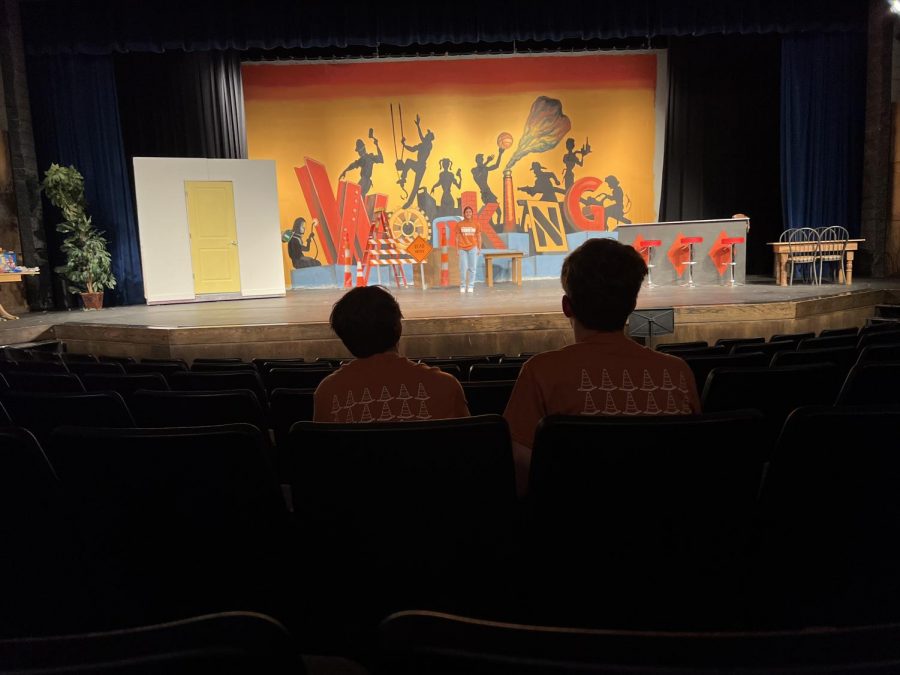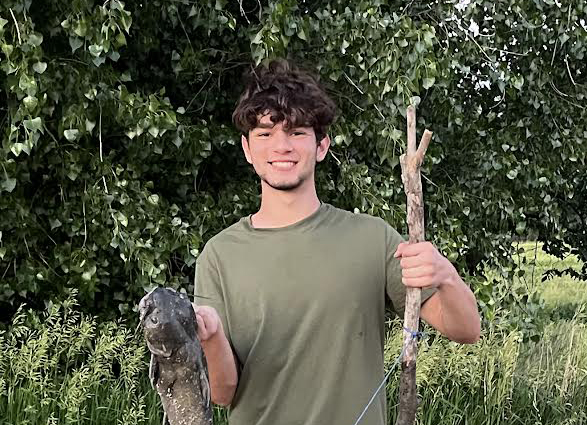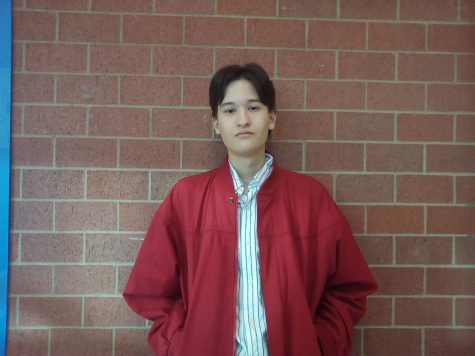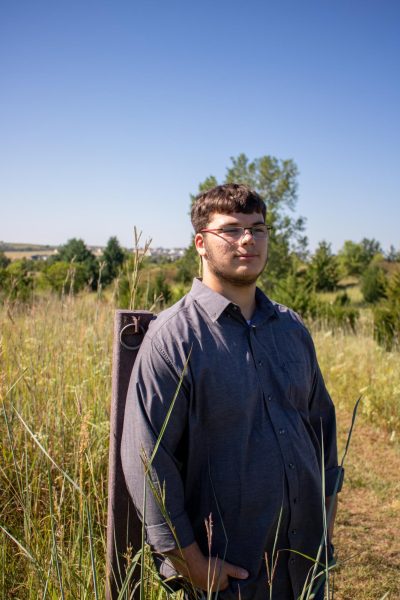24 Hours On The Job
October 1, 2022
What started off as an ongoing joke, turned into the production of Papio South’s first 24 hour musical. Seniors Jude Glaser, Reece McAdams and Henry Vote took on the daunting task of directing the musical, “Working,” a production based on the Studs Terkel book “Working: People Talk About What They Do All Day and How They Feel About What They Do.”
The musical involves small vignettes and songs of workers talking about their jobs and the struggles they face on a daily basis. The same musical was performed two years prior by the 2020-2021 Play Production class. A full backdrop was painted for that production and had been sitting in the theater ever since.
Glaser, McAdams and Vote joked about the painting collecting dust and went to the drama director, Ms. Mary Dickson, asking to do the musical again. She let them know that the only problem with doing the musical would be time, so she proposed a simple solution.
McAdams recalled her saying: “We don’t have time for a full musical right now, so you’d have to do it in 24 hours.”
The three took this suggestion literally and accepted the challenge.
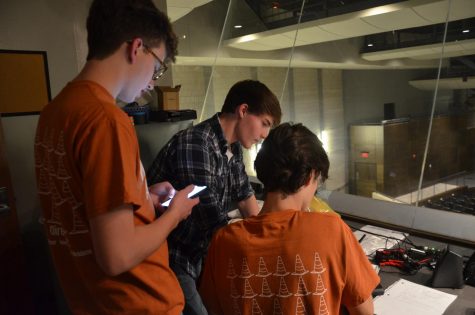
They scheduled the 24 hours for September 3rd through the 4th and were off. The first part of the process was casting. When asked about casting, McAdams and Vote expressed their initial doubts.
“At first we didn’t really think anyone was going to audition for the show because like…,” Vote said, trailing off. “It was a crazy idea,” McAdams concluded.
The directors had plenty of experience with performing arts, but this was their first time directing.
“It really made us appreciate that part of the theater process, being on the other side of it,” Glaser said.
Vote added: “For sure it was so fun, but it was also so gut wrenching and difficult! … It was VERY stressful.”
The direction tactics from each student were methodical, with designated roles and unspoken agreements.
Vote led vocal rehearsals, McAdams was in charge of lighting, and Glaser was responsible for general direction. Everything each person did was purposeful whether it was making a decision to benefit the group or calling a small discussion to solve a problem.
“As the day went on, everyone started to kind of get into the musical, they started to understand it more,” Glaser said. “I think we also got better at directing ourselves, you know? We were kind of learning on the fly, and as we got more confident, so did they (the cast and crew).”
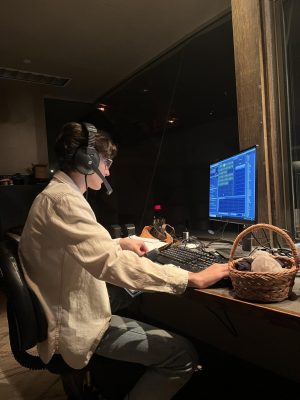
The seemingly quiet McAdams was glued to a headset all day, giving directions to other students on the tech crew. There was constant fluidity between the decisions he had to make and the process of the show slowly becoming a finished product.
Vote and Glaser sat in the audience while watching members of the cast perform. They would yell out directions such as, “Smile!” or “Brighten your face!”
As general director, Glaser led one-on-one discussions with cast members, making decisions about characterization and what creative choices they could make to heighten their performance.
Glaser was also responsible for conceptualizing scenes and communicating his ideas to the cast and the other two directors.
Vote also offered help one-on-one, but his main responsibility was leading vocal rehearsals. It was his job to teach everyone their parts and make vocal decisions for certain scenes. “Sophie’s song, when it was just the five of us on stage, was originally going to be an ensemble number with everyone in it, but I started teaching it and was like, ‘We’re never going to get through this music in this amount of time; we have to move on.”’
Each director choreographed and added a creative touch to a song or two, from emotional performances to clever use of props.
Their long-standing friendship helped them work together, they agreed, but things weren’t always smooth sailing between them.
As with any collaborative project, disagreements happened.
“Jude would pretty much be our leader and if we ever got in-,” Vote offered, with McAdams finishing: “a HUGE disagreement.”
“Me and Reece like to disagree on everything,” Vote said, “So Jude is the tiebreaker.”
Vote then elaborated: “The fact that we’re so close, I mean, Reece knows that I’m not gonna hate him forever because he missed one cue,” he said, with McAdams responding: “And I’m not going to hate you forever for yelling at me about it.”
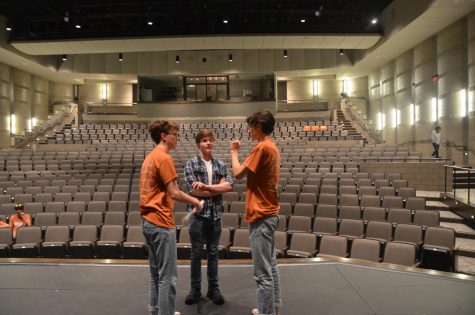
They agreed that the outcome of the production would not have been possible if it had been done by one person rather than all of them.
After 24 exhausting hours, everyone in the cast and crew poured their hearts into the one and only performance of “Working” for the year. Emotions were running high with nerves and excitement, and nobody knew what to expect from the audience but the turnout was better than they had imagined.
Admission to the event was free, but through donations and concessions, the musical managed to bring in $1,300 for the theater department.
“When I saw the audience,” Glaser said, “I was in utter shock. I didn’t expect that many people. I expected 50 to 100 people at most, but the whole theater was packed.”
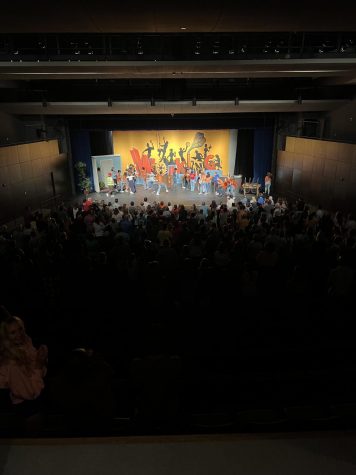
The original goal of the production had been to make sure students had a good experience without a large commitment, but those expectations were exceeded.
The audience’s energy was contagious and the actors on the stage fed off it. When someone would forget a line, they would jump back into it and the audience would erupt with applause.
“The support from our audience was so amazing that each flaw that I expected to be reeling over actually just made me laugh,” Vote said.
By the end of the production, everyone was exhausted, but a sense of accomplishment rang through the air. Producing a musical in 24 hours is no easy feat, and the students involved in this project proved this with endless hard work.
During the show’s finale, a song titled “Something to Point To,” about seeing one’s hard work represented and being proud of what has been accomplished, McAdams had a look of joy and honor in his eyes.
As students were running around receiving compliments, flowers, and other signs of affection, directors Glaser and McAdams shared a tear-filled hug.
“I will 100% remember the moments after the show being so tired, so happy, so proud, and feeling such a huge sense of accomplishment,” McAdams said, “along with receiving countless compliments from even the most brutally honest people. It was such a surreal, amazing, and incredible experience that will be impossible to forget.”
McAdams said he gained new respect and gratitude for those who had directed him in the past, including Ms. Dickson. “Now that I’ve fully experienced all the difficult work that is put into doing something like this, both the preparation and actually putting plans into action.”
Vote also expressed a newfound perspective of theater. “This experience has shown me how difficult putting on a show is. From the preparation beforehand, to the tedious music rehearsals, the process of being in charge was so, so draining,” he said. “But the payoff was incredible.”
Glaser expressed simultaneous disbelief and satisfaction.
“Now that I’ve had time to process what we were able to accomplish,” he said, “I’m still shocked how miraculously everything came together – and the audience really enjoyed the obvious passion we put in.”
In the end, the show gave each person involved their own “something to point to.”
